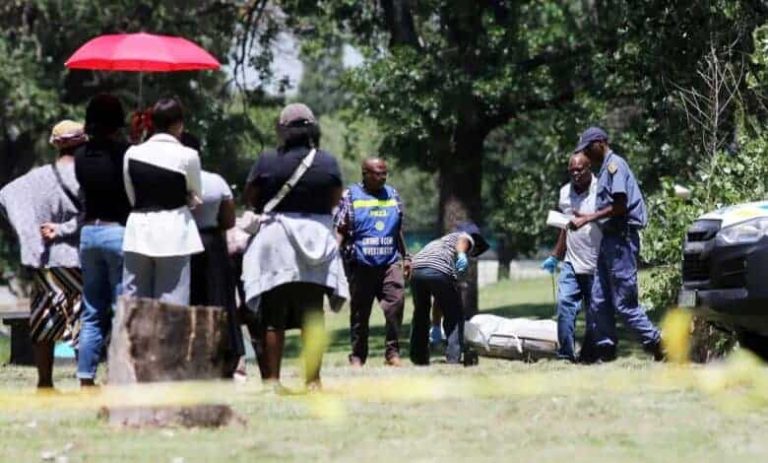
Small business loan application on the wooden surface and documents.
Billions have been spent on loans for micro, small and medium enterprises (MSMEs) in the last decade, but it has done little to spark widespread employment.
Although the funds have created hundreds of thousands of short and long-term jobs, the unemployment rate has continued to climb.
The Department of Small Business Development (DSBD) stated it is working on cutting red tape, but detractors argue that government was “squeezing the flexibility and dynamism out of the economy through over-regulation, excessive state spending, and unjustifiably high taxes”.
Almost 700 000 jobs maintained
In a series of written replies to questions submitted through parliament, the department elaborated on its work over the last 13 years.
DSBD confirmed it had spent R36 billion on direct and indirect loans between April 2012 and June 2025 via the Small Enterprise Development and Finance Agency (SEDFA).
These loans went to 892 364 MSMEs and created 1 148 075 jobs, with 694 608 of those jobs listed as “maintained”.
While R3 billion a year was being spent on business and entrepreneurial development, South Africa’s unemployment rate rose by 8%, from 25.2% in April 2012 to 33.2% in June 2025.
DSBD listed 45 types of loan options, confirming R16.6 billion was paid in the form of direct loans and that R20.3 billion was disbursed by third-party partners.
The department acknowledged a query sent regarding the interest rates charged, as well as the number of loans which had been repaid, but the response had not been received at the time of publication.
35% of Covid-era businesses folded
Businesses in Limpopo, the Eastern Cape and KwaZulu-Natal benefited in greater numbers, with 198 025, 150 084 and 107 169 recipients, respectively.
However, the economic hubs of Gauteng and the Western Cape were among the lowest, with 17 051 and 4 804 recipients, respectively.
Among the standout sector-specific expenditures, R2.3 billion went to the township and rural entrepreneurship programme micro lending.
Additionally, R5.4 billion went to portfolio credit guarantees, R1.6 billion on retail financial intermediaries and R4 billion for a line item listed simply as ‘funds’.
One parliamentary reply lists Covid loans to the value of R781 million, while another states that 1 144 businesses were assisted to the value of R316 million to soften the blow of the pandemic.
Of these recipients, 65% were still trading and 56% had honoured their loan agreement.
However, 35% of the Covid-era beneficiaries did not honour their agreement, and the department states the businesses did not survive.
‘Deregulation and lower taxes’
Head of Policy at the Free Market Foundation (FMF), Martin van Staden, stated that the DSBD initiative was based on an “incorrect premise”, insisting the state was an obstacle for small enterprises.
“There is only a perceived need to subsidise small business through the SEDFA because the state makes it so difficult, through regulation, taxation, and a generally anti-business environment,” Van Staden told The Citizen.
“The sad irony is that the DSBD is itself a regulator when it should be the primary deregulator in the country.”
Van Staden envisioned a DSBD and SEDFA that committed to a deregulation programme that would level the playing field for small businesses.
“This should not be about skills transfers or subsidisation, but about giving entrepreneurs a freer hand to meet market demands and compete with bigger players.
“The bigger players currently rely on the state to make it more difficult for their smaller, more nimble competitors to do business,” said Van Staden, stressing the need to strip away legislative hurdles.
Cutting red tape
DSBD stated it was aware of “burdensome” business processes and explained it had been formulating a Red Tape Reduction (RTR) framework.
“The purpose of this framework is to establish a cohesive and systematic approach to address the regulatory and administrative challenges faced by MSMEs across government levels”, advised Minister Stella Ndabeni-Abrahams.
The framework was the outcome of an RTR report from the previous financial year released in March.
The report recommended the establishment of a small business ombudsman, the standardisation of licensing procedures across municipalities and the adoption of e-registration systems.
Additionally, an RTR case management register is to be implemented, as well as the development of sector-specific indicators to assess the framework’s RTR outcomes.
“The RTR framework’s implementation will also feature a proactive and aggressive program of public and private dialogues,” stated the minister.
Voluntary exemptions
Reducing unemployment would be the primary indicator of success, and Van Staden suggested an initiative that could run alongside the imperatives of deregulation and lower taxation.
“The FMF has recommended a specific intervention in this regard as well: a Job Seekers Exemption Certificate (JSEC).
“This certificate would allow a person who has been unemployed for an extended period of time to exempt themselves voluntarily from South Africa’s most stringent labour laws and thus make themselves available for employment on mutually agreed-upon terms with employers without the state dictating terms like it does today,” said Van Staden.
“While some might cry ‘exploitation’, the reality is that such luxurious and activist notions are ultimately academic amidst South Africa’s unemployment crisis.
“We need people en masse to work and be productive if we want to avoid catastrophe,” he concluded.
NOW READ: Spaza shop draft bylaws ‘anti-growth’ in an ‘overregulated’ economy – FMF



